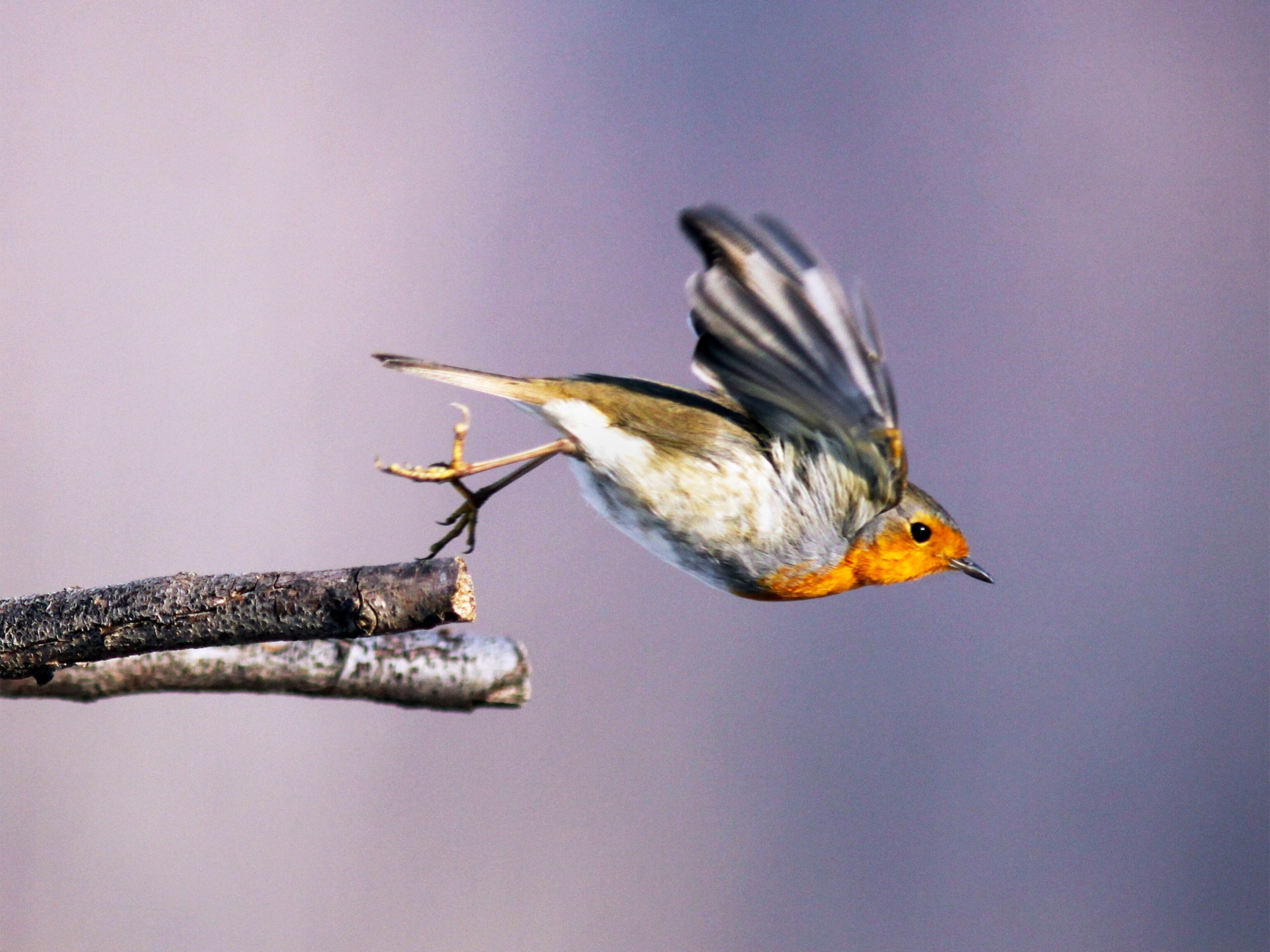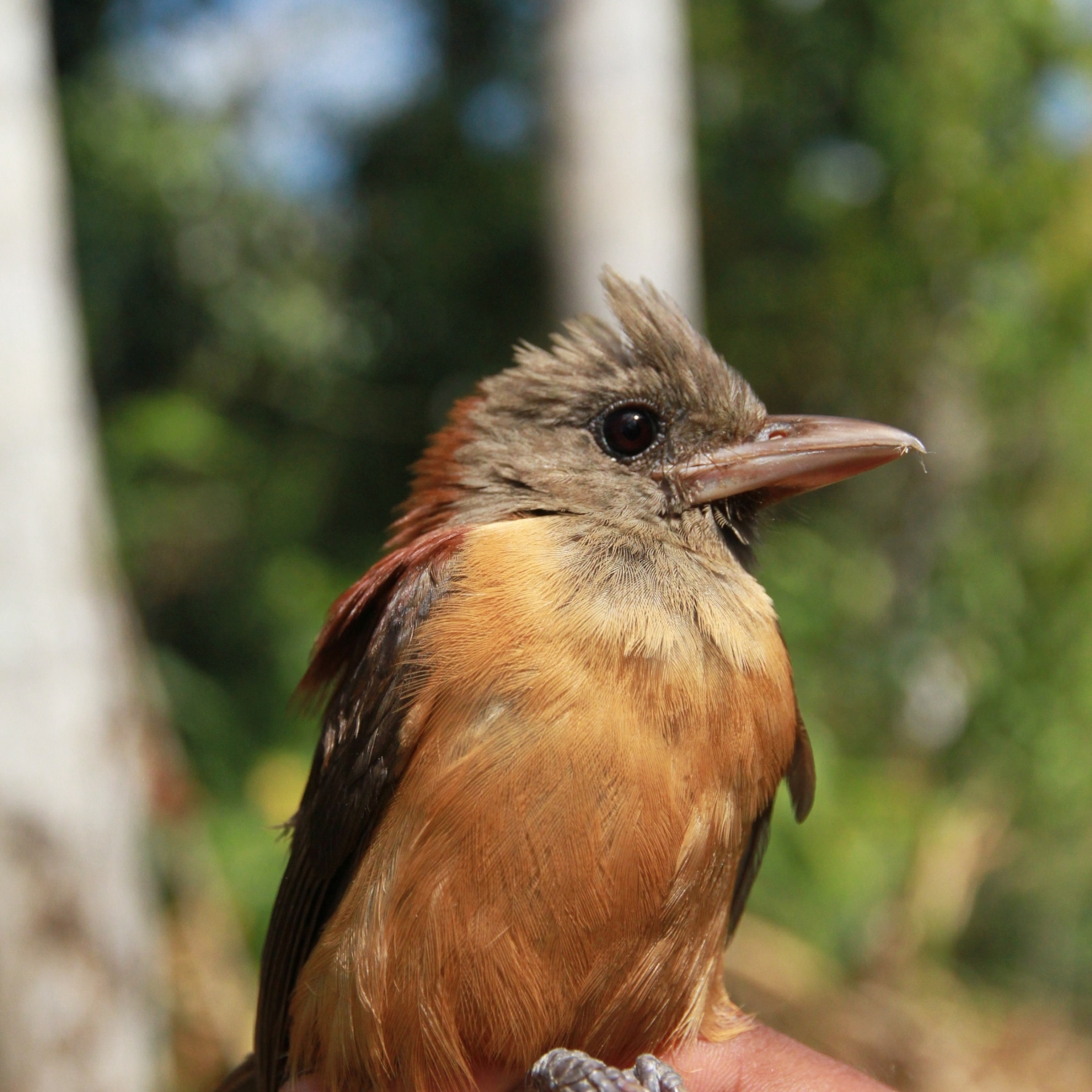
Cracking Mystery Reveals How Electronics Affect Bird Migration
From a glitch in a bird experiment, scientists gain startling insight into the effects of weak broadband waves.
In the spring of 2005 Henrik Mouritsen was stumped. Mouritsen, a professor of neurosensory sciences at Germany's University of Oldenburg, had just launched an ambitious investigation into what part of the brain a migratory bird uses in orienting to the Earth's magnetic compass.
The animal navigation expert had all his ducks in a row: funding, lab space, graduate students, sophisticated instruments. But to Mouritsen's dismay, the birds themselves (not actually ducks, but European robins) refused to cooperate.
The birds' innate migratory behavior—well documented, fundamental to the research design, and the least of Mouritsen's concerns going into this project—had gone haywire.
(Robins can literally see magnetic fields, but only if their vision is sharp)
It took Mouritsen and his team three years to get to the bottom of the birds' seemingly anomalous behavior. But in doing so the scientists made a startling discovery—one with important implications both for songbird conservation and for human health. The results are published in the current issue of Nature, released today.
Here's how the mystery was unraveled.
Birds, and Scientists, Baffled
Mouritsen's research centers on two wooden huts and two sets of night-migrating European robins already restless to fly north. One set of birds serves as the control population; the other is subject to various manipulations once the experiment gets under way.
Inside the huts, robins are released in special cages called Emlen funnels. Thermal paper linings in the funnels record the scratches the birds' feet make as they scrabble upward. In the absence of other navigational cues, namely sun and stars, the birds will orient to the Earth's magnetic field, which is detectable through the wooden walls of the huts. They will take off toward the north, marking the paper in their attempt to escape.
Or so they had in thousands of previous experiments, including Mouritsen's own Ph.D. research conducted in rural Denmark. But this time the exercise went immediately awry.
The robins seemed to have no idea where north was. "The birds basically jumped in random directions every spring and autumn for three years," Mouritsen says.
Puzzlement gave way to desperation. The scientists changed the robins' food, their cages, the shape of their cages, the light, the daylight cycle. Nothing affected the randomness of the scribbles inside the funnels.
Then a graduate student, Nils-Lasse Schneider, suggested using aluminum Faraday cages. A Faraday cage is basically a grounded metal box. It doesn't screen out the Earth's powerful, static magnetic field—but it would shield against weaker, time-dependent electromagnetic fields such as those generated by electric appliances and electronics.
"I would have laughed the suggestion off three years earlier," Mouritsen admits. Instead, they installed aluminum Faraday cages in the huts, grounding them to wires screwed to the outside. Once again, the scientists released the robins in the Emlen funnels. Miraculously, it seemed to Mouritsen, the robins flew north.
Three years behind schedule at this point, the scientists threw themselves into conducting the brain experiment. They identified "cluster N," a part of the robin's forebrain, as the site where magnetic compass information is processed in the bird's brain. They published that finding in Nature in 2009.
But the weird behavioral hitch resolved by the Faraday cages still had the scientists scratching their heads.

The Simple Turn of a Screw
Though the effect of weak electromagnetic fields has been a hotly contested issue—related to the safety of cell phones and the like—there existed no reliable scientific evidence of weak electromagnetic fields affecting behavioral processes.
Furthermore, if the cages worked because they screened out confounding sources of weak electromagnetic activity, why had unscreened huts worked without Faraday cages elsewhere in the past? Had something changed?
Finished with their brain experiment, Schneider and Mouritsen decided to run a quick test. They assigned students to release robins in both huts over subsequent days. Without letting the students know, the scientists repeatedly disconnected and connected the cages' grounding screws in each hut.
As the students observed the robins, they saw no discernible pattern in the birds' ability to orient to north at some moments but not at others. Then Schneider and Mouritsen revealed the schedule on which they'd been grounding and ungrounding the shielding cages—and the patterns aligned perfectly. The simple turn of a screw turned on and off the birds' orientation mechanism.
Intrigued, the team next measured electromagnetic disturbances inside the huts, grounded and ungrounded. The noise detected in the ungrounded huts was broadband in frequency, in the range of AM radio, and it was low—a hundred to a thousand times below the guidelines adopted by the World Health Organization to protect human health. Yet mystifyingly it proved enough to disable the birds' magnetic compass.
Then came the clincher, one more layer of proof. The scientists intentionally added broadband, low-level noise inside the screened huts. Disturbances no stronger than those equivalent to AM radio frequencies were enough to switch off the birds' magnetic compasses.
"Powerful Effects on Songbirds"
The scientists were astonished. "We were seeing powerful effects on songbirds, yet billions of migratory songbirds nevertheless do arrive at their destinations every season," says Mouritsen. "And you can listen to AM radio everywhere. So how could these signals be disturbing birds?"
The scientists took their experiment out of town. In the middle of a field outside of Oldenburg, far from any electric and electronic equipment, they reran their experiment. The level of noise in the unscreened hut in the field approximated that in the screened hut in Oldenburg. Birds took off toward the north.
Though they could hardly believe it themselves, the scientists had their answer. Low-level, broadband electromagnetic noise—the kind that urban areas are now awash in—can disable a critical tool migratory songbirds use in finding their way between seasonal destinations.
This finding that urban areas can handicap navigation may help explain the disturbing decline in migratory songbird populations, Mouritsen says.
It also provides the first ever, scientifically sound evidence of weak, anthropogenic electromagnetic fields affecting a biological process.
What devices are contributing to the noise? Given the measured frequencies, Mouritsen can say that these are not from cell phones or power lines—but other than that, he can't specify. The possible sources are almost endless: The Oldenburg campus alone houses everything from toaster ovens to scanning electron microscopes.
Because of this finding, it might eventually be possible to phase out use of those frequencies found to disturb birds' navigation. It pleases Mouritsen that his team made this contribution to avian science.
As to the implications for human health: "Not my area of interest," Mouritsen declares flatly. "We stumbled upon these effects by chance. I won't pursue this finding—though others may."







